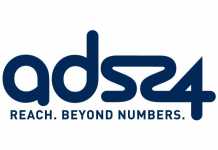There’s no denying that PR has – and is – changing at a phenomenal rate and the imperative for all PR professionals is to keep up with – or get ahead – of the curve. After all, not only does the industry require it, but clients deserve to work with professionals who are well versed in both traditional and digital PR.
At the same time, it’s important to acknowledge that while digital has catapulted PR to a new level in terms of reach and audience targeting, there is – and always will be – a place for traditional PR. Together, traditional and digital PR provide a powerful marketing mix for brand elevation, leading to the conversion of sales leads which positively impacts the bottom line.
So how does an agency ensure that it is able to deliver the full basket of skills to its clients, when dealing with a broad spectrum of individuals with a diverse range of experience and skills?
It’s a dilemma that agencies face today: a balancing act trying to build a business that can provide comprehensive services to an ever-evolving group of clients, who are fast making the decision to delve into new digital marketing platforms.
What we also know is that an understanding of digital PR – whether strategic or a deep dive – is vital for any PR professional’s overall brand elevation campaign: it influences the way content should be written, and changes the thought process to open up limitless outreach opportunities.
Also, whether traditionalists want to believe or accept it, brand elevation and reputational risk management is now no longer just about traditional media: a negative comment on social media can in many instances be more damaging, largely due to the immediacy of the comment and its reach.
The shift is happening, and some agencies are embracing the move more willingly than others. Having said that, the industry still has some way to go in truly appreciating what digital can and cannot do for a client. It is a moving target.
However, it must be said that understanding the true nuances – and guiding the client accordingly – is where the more traditional PR professional’s experience still has the upper hand. Already familiar with analysing a publication for its content, reach and relevance, the traditionalist will use those same skills – research and insight – to scour the various digital platforms for relevant opportunities.
Align this thorough approach with the digital specialist, and you can just imagine what can be achieved.
Top tips to consider for digital PR:
- Writing content with SEO in mind
- Consider mixing earned, owned and paid for content
- Make use of tracking tools such as Google Analytics and UTM tracking links in releases
- Increased use of multimedia (infographics, animated explainer videos. short videos)
- Keyword analysis to better understand what your potential customers are searching for
Augment the reach of your PR campaigns through paid digital advertising























































































